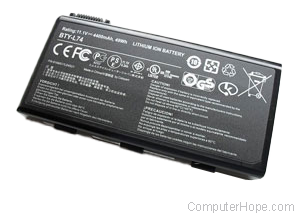What are the advantages and disadvantages of Li-ion batteries?

Li-ion batteries are a fragile technology requiring protector circuit; the Li-ion is used where very high energy density is needed and cost is secondary.
Advantages of today's Li-ion batteries
The energy density of the Li-ion is at least twice that of the NiCad and its load current rating is reasonably high. In fact, the Li-ion behaves similarly to the NiCad in terms of discharge characteristics. The Li-ion also has a relatively low self-discharge.
No memory effect
500 to 800 charging cycles
Disadvantages of today's Li-ion batteries
Susceptible to damage from overcharge and over discharge.
Charging: Only use battery chargers especially designed for the Li-ion battery.
Caution: Li-ion batteries have a very high energy density. Exercise precaution when handling and testing. Do not short circuit, overcharge, crush, mutilate, nail penetrate, apply reverse polarity, expose to high temperature or disassemble. High case temperature resulting from abuse of the cell could cause physical injury. Never try to charge a non-rechargeable lithium battery. Attempting to charge these batteries can cause explosion and fire, which spreads toxic material that inflicts injury and damage equipment.
Important: In case of rupture, leaking electrolyte or any other cause of skin or eye exposure to the electrolyte, immediately flush with water. If eye exposure, flush with water for 15 minutes and consult physician.
